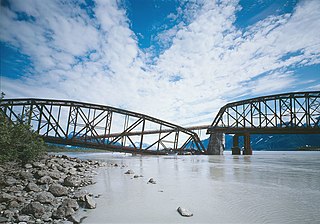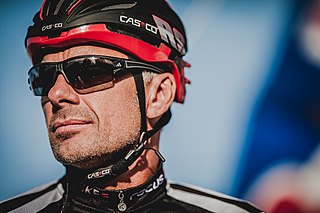Related Research Articles

A kludge or kluge is a workaround or quick-and-dirty solution that is clumsy, inelegant, inefficient, difficult to extend and hard to maintain. This term is used in diverse fields such as computer science, aerospace engineering, Internet slang, evolutionary neuroscience, and government. It is similar in meaning to the naval term jury rig.
New German Cinema is a period in German cinema which lasted from 1962 to 1982, in which a new generation of directors emerged who, working with low budgets, and influenced by the French New Wave, gained notice by producing a number of "small" motion pictures that caught the attention of art house audiences. These filmmakers included Harun Farocki, Rainer Werner Fassbinder, Werner Herzog, Alexander Kluge, Ulli Lommel, Wolfgang Petersen, Volker Schlöndorff, Helma Sanders-Brahms, Werner Schroeter, Hans-Jürgen Syberberg, Margarethe von Trotta and Wim Wenders. As a result of the attention they garnered, they were able to create better-financed productions which were backed by the big US studios. However, most of these larger films were commercial failures and the movement was heavily dependent on subsidies. By 1977, 80% of a budget for a typical German film was ensured by a subsidy.

Alexander Kluge is a German author, philosopher, academic and film director.

Günther Adolf Ferdinand von Kluge, also known as Hans Günther von Kluge, was a German field marshal during World War II who held commands on both the Eastern and Western Fronts. He commanded the 4th Army of the Wehrmacht during the invasion of Poland in 1939 and the Battle of France in 1940, earning a promotion to Generalfeldmarschall. Kluge went on to command the 4th Army in Operation Barbarossa and the Battle for Moscow in 1941.

Edgar Reitz is a German filmmaker and Professor of Film at the Staatliche Hochschule für Gestaltung in Karlsruhe.
The John W. Kluge Center at the Library of Congress invites and welcomes scholars to the Library of Congress to conduct research and interact with policymakers and the public. It also manages the Kluge Scholars' Council and administers the Kluge Prize at the Library of Congress.

Oskar Reinhard Negt is a philosopher and critical social theorist. He is an emeritus professor of sociology at Leibniz University Hannover, and one of Germany's most prominent social scientists. Little of his work has been translated into English.
Kluge is a German-derived surname. In German, capitalizing, and adding a final e to, the adjective klug, creates a noun; it is applicable to females and means "clever one".
The Oberhausen Manifesto was a declaration by a group of 26 young German filmmakers at the International Short Film Festival Oberhausen, North Rhine-Westphalia on 28 February 1962. The manifesto was a call to arms to establish a "new German feature film". It was initiated by Haro Senft and among the signatories were the directors Alexander Kluge and Edgar Reitz. The manifesto was associated with the motto "Papas Kino ist tot", although this phrase does not appear in the manifesto itself.
'Beate Mainka-Jellinghaus' is a German film editor who was a member of the New German Cinema movement and is noted particularly for her many films with director Werner Herzog. Between 1966 and 1986, she was credited on more than twenty-five feature films and feature-length documentaries.

Saints and Sinners is an American drama series that aired on NBC during the 1962-63 television season. The program starred Nick Adams as newspaper reporter Nick Alexander. Saints and Sinners was created by Adrian Spies, who worked as a journalist before becoming a screenwriter.
Artists in the Big Top: Perplexed is a 1968 West German film written and directed by Alexander Kluge. The film is made in a collage style, featuring newsreels and quotations from philosophers alongside the story of a failing circus whose owner, Leni, must decide whether her dream of a new kind of circus is too optimistic. The film is a symbolic representation of Kluge's own frustrations in trying to help stimulate the New German Cinema movement.

Yesterday Girl is a 1966 drama film directed and written by Alexander Kluge. The film is based on the short story "Anita G." (1962), which is also by Alexander Kluge. The film tells the story of Anita G., a young East German migrant to West Germany and her struggle to adjust to her new life. The film is associated with New German Cinema.
Alexandra Kluge was a German actress and medical doctor.

Mike Kluge is a German cyclist. Kluge is a multiple German champion and amateur world champion in cyclo-cross in 1985 and 1987 and professional world champion in 1992.
The Schiller Memorial Prize is a literature prize of the State of Baden-Württemberg. It is endowed with 25,000 euros and has been awarded since 1955 on Friedrich Schiller's birthday, 10 November. The prize acknowledges outstanding work in the field of German literature or intellectual history, for single works or collected works. At the same time, there are also two lesser prizes with 7,500 euros awarded for young dramatists.
Heidi Genée was a German film editor, director and screenwriter. She worked on 46 films between 1958 and 1984. Her 1977 film Grete Minde was entered into the 27th Berlin International Film Festival. Five years later, her film Kraftprobe was entered into the 32nd Berlin International Film Festival.

Schizoporella is a genus of bryozoans in the family Schizoporellidae.
The 27th annual Venice International Film Festival was held from 28 August to 10 September 1966.

Eumetabola is an unranked clade of Neoptera. Two large unities known as the Paurometabola and Eumetabola are probably from the adelphotaxa of the Neoptera after exclusion of the Plecoptera. The monophyly of these unities appears to be weakly justified.
References
- ↑ Kluge, Alexander, Case Histories, 1962.